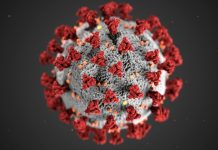Healthcare in Dubai has always attracted attention for its access to advanced treatments and high-quality services. In recent years, though, a different type of care has been gaining momentum—functional medicine. This approach focuses on identifying and treating the root causes of illness, rather than just managing symptoms. It’s a shift that many people are drawn to, especially those dealing with long-term health issues or looking for more personalized treatment options.
The rise of functional medicine in Dubai reflects a growing interest in looking at the bigger picture when it comes to health. This includes lifestyle, nutrition, stress, sleep, and how all these elements work together.
What Functional Medicine Offers
Functional medicine is not a replacement for conventional medicine, but rather a different way of thinking. Instead of focusing only on isolated symptoms, a functional medical doctor looks for patterns and underlying imbalances. For example, two people might experience the same symptom—chronic fatigue—but for completely different reasons. One might be dealing with hormonal imbalance, while another could be struggling with poor digestion or nutrient deficiencies.
The process often starts with an in-depth health assessment, including detailed lab work, discussion of personal and family history, and an evaluation of daily habits. Based on this information, the doctor builds a customized plan that may involve dietary adjustments, targeted supplements, stress reduction strategies, and other non-invasive methods.
People who seek out functional medicine are often looking for answers they haven’t been able to find through standard approaches. This is especially true for those with ongoing issues like gut problems, hormone imbalances, autoimmune conditions, or fatigue that doesn’t improve with medication alone.
Why Dubai Is Seeing More Interest
As the wellness industry in the UAE continues to grow, so does demand for treatments that focus on long-term wellbeing. More people are looking for healthcare providers who take the time to understand the full context of their health. This is where a functional doctor in Dubai can make a difference.
The city’s multicultural population also plays a role. People from different backgrounds often bring their own experiences and expectations to health and wellness. Some are already familiar with functional medicine from other parts of the world and are now searching for similar care in Dubai.
Clinics that offer functional medicine often combine modern diagnostics with nutritional therapy, hormone support, and stress management techniques. This blended approach appeals to people who are interested in both science and prevention, without relying solely on prescriptions or surgeries.
What Makes Functional Doctors Different
A functional medical doctor may have a background in conventional medicine, but their training extends beyond diagnosis and medication. They often study additional fields such as nutrition, biochemistry, integrative medicine, and mind-body health. This allows them to take a broader look at how different systems in the body interact.
Their goal isn’t just to reduce symptoms temporarily but to support balance across multiple areas—such as hormones, gut health, immune function, and detoxification. The idea is that when these systems are supported properly, the body is more likely to recover and stay healthy.
In Dubai, a functional doctor typically spends more time with patients than traditional providers. Appointments often last up to an hour or more, giving space for a deeper conversation about lifestyle, emotional health, and daily habits. This kind of care is especially appealing to people who have been dealing with chronic symptoms without clear answers.
Common Conditions Treated
Many people turn to functional medicine when they feel stuck or unheard in standard medical settings. Conditions that are often addressed by a functional doctor in Dubai include:
- Digestive issues such as IBS, bloating, and food sensitivities
- Thyroid problems, including hypothyroidism and Hashimoto’s
- Hormonal imbalance, including issues related to menopause or testosterone
- Autoimmune diseases
- Fatigue, brain fog, or poor sleep
- Skin concerns such as acne, eczema, or premature aging
The treatment process is usually gradual. A plan might include dietary changes, removing potential triggers (like gluten or sugar), supporting liver function, or recommending high-quality supplements. Many people appreciate that the approach is based on their individual test results, not general assumptions.
Personalized Attention in a Busy World
One of the reasons why functional medicine is growing in popularity is because it allows space for real conversations between patients and doctors. Instead of rushed visits or quick diagnoses, patients are encouraged to be part of the process.
This is especially helpful in a place like Dubai, where long working hours, stress, and a fast lifestyle can take a toll on health. A functional medical doctor may work with clients on reducing stress, improving sleep quality, and planning meals that support energy and mood. These aren’t always seen as priorities in standard care, but they’re often central to feeling better over the long term.
The process requires commitment. It’s not about quick fixes, but rather steady progress. Some people see improvements within weeks, while others might take longer. What they often gain, though, is a better understanding of their own health—and more control over it.
Looking Ahead
As awareness of functional medicine grows, more people in Dubai are starting to ask different questions about their health. Rather than just focusing on test results or symptoms, they want to know what’s happening underneath. They want care that’s based on connection, curiosity, and real solutions.
More clinics are now offering this type of care, and the demand is likely to keep growing. For those who haven’t found relief through traditional routes, seeing a functional doctor in Dubai can offer a new perspective.
Functional medicine isn’t about treating one part of the body in isolation. It’s about understanding how everything works together. In a city that values innovation and quality of life, this kind of care is finding its place.












































